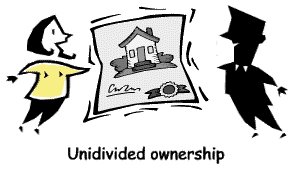
Quite often married couples believe they don't have to do any estate planning because they own their property as joint tenants and everything will pass to the surviving spouse at the first spouse's death. Although it is true that titling property in this manner can avoid probate, there are serious drawbacks to this approach.
1. Not Taking Advantage of Each Spouse's Federal Estate Tax Exemption. Leaving everything outright to a surviving spouse means you are not taking advantage of both spouses' federal estate tax exclusions, or "coupons" against federal estate tax ($2 million each in 2008; $3.5 million each in 2009). With proper planning you can take advantage of both spouses' exclusions. This means in 2008, you and your spouse can pass $4 million free of estate tax. However, if you do not plan in advance (i.e., instead, leave everything outright to your surviving spouse), the surviving spouse will only get to use his or her single exemption. So assuming a $4 million estate in 2008, applying a single exclusion leaves $2 million in assets subject to a 45% federal estate tax rate. This results in a $900,000 mistake - this $900,000 could have easily gone to your loved ones instead of the IRS.
2. Simultaneous Death Leading to Probate of Your Estate. None of us can predict how or when our time will come. In the unfortunate situation of, for example, a common accident, assuming no other estate planning has been done, there will be a court-supervised probate of the property. Your heirs will be determined by the intestacy laws of the State of California, and may not be the people whom you would like to receive your property. Probate fees in California are based on the gross value of the assets (not net of mortgages or other indebtedness), are set by law, and can consume a significant portion of your estate. Thus, for example, if you own nothing more than a $500,000 house, even if the mortgage is $495,000, probate fees to the court-appointed administrator and attorney, if hired by the administrator, will exceed $25,000. Court costs and probate referee fees (for the court to appraise your property) will also be assessed. Other drawbacks to probate include the fact that it is a public process, allowing anyone to access information about your heirs and the nature and extent of your assets. Lastly, probate is a time-consuming process. Because creditors must be notified and given four months to file claims, and there are court filings, notice requirements, hearings, and accountings, etc., the probate process can take from six months to several years to complete.
3. Not Taking Advantage of the Double Step Up in Cost Basis. When a joint tenant dies, his or her interest in the property receives a step up in cost basis to fair market value on the date of his or her death. However, the surviving joint tenant will retain his or her cost basis. Therefore, if you and your spouse bought a home years ago for $200,000 as joint tenants and that home is worth $2 million at the first spouse's death, the survivor's new cost basis at the first death will step up to $1.1 million (the deceased spouse's cost basis steps up to $1 million and the surviving spouse's cost basis remains at $100,000). If the surviving spouse then wants to sell the property, this $900,000 will be subject to capital gains tax. If, however, the property is held in community property (and typically also held in a revocable living trust), there is a double step up in basis to $2 million (both interests step up to $1 million each) so there is no exposure to capital gains tax if the property is sold for $2 million.
4. Blended Family Situations. If you are in a blended family situation with children from prior relationships, do you really want to leave everything outright to your surviving spouse? With proper estate planning (use of B/Bypass/Credit Shelter/ Exemption/Family and C/Marital/QTIP trusts), you can provide for your spouse during his or her lifetime with your share of the assets, yet ensure the remainder will go to your children or other loved ones.
Lastly, quite often a parent will want to add a child to title on his or her residence so that the property passes to the child upon the parent's death. Problems with this approach are that 1) you are giving up a present interest in your property now instead of at death, 2) a child's divorcing spouse may make a claim to the property, 3) the value of the gift exceeding your annual gift tax exclusion ($12,000 in 2008; $13,000 in 2009) is dipping into your lifetime $1 million gift tax exclusion, for which you will need to file a gift tax return, and 4) if, for example, your child gets in an accident, a creditor can force a sale of your property to satisfy a judgment. It is often advisable to have the property pass at death so you retain control during your lifetime. If your child inherits your property at your death, he or she will receive a full step up in cost basis to the fair market value on the date of your death so that if your child turns around and sells the residence, he or she will not incur any capital gains tax.